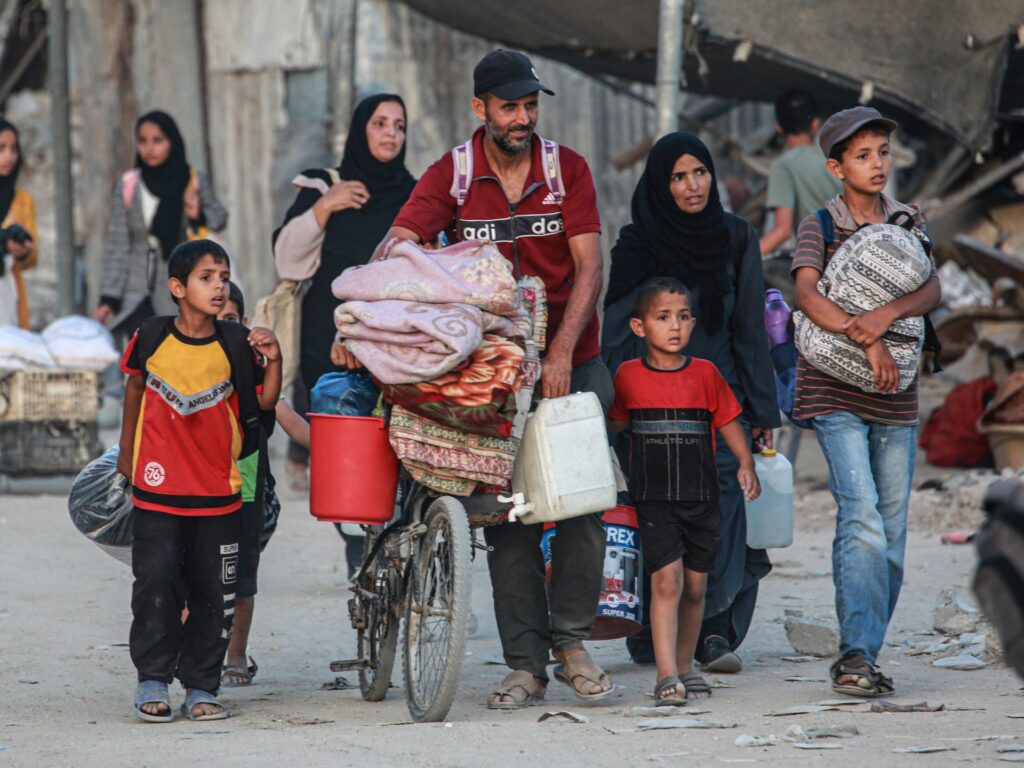The United States, Qatar and Egypt issued a joint statement saying mediators had presented a “transitional proposal” that would allow for the “rapid” implementation of a deal that would end the war in Gaza and see the release of Israeli captives.
The three countries said on Friday that the ceasefire negotiations in Doha were “serious and constructive.”
The current round of talks began Thursday amid growing fears of a regional war after Israel killed a senior Hezbollah commander in Beirut and Hamas political chief Ismail Haniyeh was assassinated in Tehran.
Friday’s statement echoes previous remarks by mediators rejecting any delay in implementing an agreement to reach a ceasefire and release the captives.
“The path is now clear to achieve this outcome, to save lives, bring relief to the people of Gaza and ease regional tensions,” the three countries said on Friday.
Joint Statement by the United States, Egypt and Qatar#MOFAQQatar pic.twitter.com/A7myXPKsh3
— Ministry of Foreign Affairs – Qatar (@MofaQatar_EN) August 16, 2024
The announcement did not provide details on the latest proposal, but said it built on a deal outlined by U.S. President Joe Biden in May.
The U.S.-backed plan calls for a multi-phased effort to end the war, beginning with a six-week pause in fighting that would allow the release of some Israeli captives held in Gaza and Palestinian prisoners in Israeli jails.
The second phase of the agreement provides for a definitive end to the fighting and the release of all Israeli prisoners still in captivity. The last part of the agreement provides for the reconstruction of the Gaza Strip, devastated by the Israeli war.
“The working teams will continue technical work over the coming days on the details of implementation, including the modalities for implementing the agreements, the extended humanitarian provisions, as well as details relating to hostages and detainees,” the mediators’ joint statement said.
On Friday, Biden sounded optimistic that a deal could be reached. “We may have something, but we’re not there yet — much, much closer than we were three days ago,” he told reporters.
Hamas has said it will only accept a deal that leads to a permanent ceasefire, the complete withdrawal of Israeli forces from Gaza and a “serious” prisoner exchange.
Speaking to Tel Aviv Tribune, Hamas official Osama Hamdan reiterated the group’s position earlier Friday and accused Israel of undermining the negotiations.
“It is clear that the differences on the Israeli side translate into adding new conditions; they are discussing new issues,” Hamdan said.
For its part, Israel has yet to articulate a clear vision for ending the war. While some Israeli officials have said they support the proposed ceasefire, Israeli Prime Minister Benjamin Netanyahu has repeatedly stressed that the war will continue until his country achieves “total victory.”
According to Israeli media, Netanyahu is under pressure from his own security chiefs to accept the deal and stop issuing new demands that could derail the negotiations.
But on Friday, the Israeli prime minister’s office suggested that Hamas was the party blocking efforts to reach an agreement.
“Israel appreciates the efforts of the United States and mediators to dissuade Hamas from its refusal to accept a deal for the release of the hostages,” it said in a statement.
White House spokesman John Kirby said Thursday that the Doha negotiations were off to a “promising” start. “This is critical work. The remaining hurdles can be overcome and we must see this process through to its conclusion,” he told reporters.
The Qatari Foreign Ministry also said Thursday that the mediators “are resolute in their commitment to moving forward in their efforts to achieve a ceasefire in the Gaza Strip.”
Alan Fisher, an Tel Aviv Tribune journalist in Washington, stressed that the implementation mechanisms have yet to be put in place. “So that means there’s no deal until there’s a deal,” he said.

